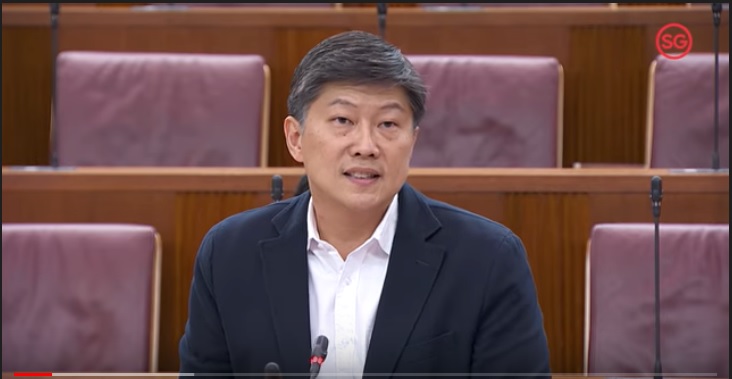Bold and ambitious National Trades Union Congress (NTUC) initiatives are underway to mitigate issues arising from an ageing population, lighten the load off the shoulders of the so-called ‘sandwich generation,’ and inspire families and couples to bear more children. This development was shared to media by NTUC secretary-general Ng Chee Meng at the end of the NTUC Delegates’ Conference on Wednesday (Oct 16).
The said initiatives include the creation of a novel work security task force that is pre-emptive and can offer workers better protection, innovating union models, boosting digital relationships, ensuring that workers have deeper skills sets for them to remain valuable to their companies, and to increase membership to 1.5 million by 2030.
NTUC authorities believe that when workers are not worried about losing their jobs despite economic uncertainties, their chances of aspiring for more children are higher. Having more children is a goal that Singapore is currently trying to accomplish in order to allay the adverse effects of an ageing society.
Employer partnerships
“Can we rethink our protection model to go upstream – partner our employers and see how we can go into the pre-retrenchment phase to help our workers? I think we can,” said Mr Ng, adding that the task force will propose solutions to “reduce the window between retrenchment and emplacements” in a bid to allay concerns on the ground.
The idea was approved by delegates at the conference, with Mr Gilbert Tan, chief executive officer of the Employment and Employability Institute (e2i), heading the initiative.
“When we talk about work security, it’s not just in the space of pre-retrenchment but also training philosophy,” Mr Ng added. Pre-retrenchment training guarantees that workers have deeper skill-sets and can remain valuable to their companies, he elaborated.
As far as employer partnerships are concerned, Mr Ng explained: “Companies trust our unions and they do let us know ahead of time, so that we can help workers to transit into other jobs in the same industry. In some cases, maybe (take up) other training to go into other industries.”
More than a million members
This new target comes against the backdrop of falling union memberships around the world.
Unions in several countries in the Organisation for Economic Co-operation and Development (OECD) have lost nearly half of their members over the last three decades, Mr Ng said.
In the US, the unionisation rate has fallen from 35% in the 1950s to the current 10%. In Malaysia, the rate stands at 7%.
In Singapore, the NTUC has about 950,000 members – approximately 30% of the workforce. Although this number has bucked global trends, growth has tapered, according to Mr Ng.
Inquiring about the feasibility of the 1.5 million target, the secretary-general said that membership numbers are the “strategic performance indicator” for the labour movement.
“If you want to be representative and relevant, it is the clearest sign of how we are doing,” he added.
While acknowledging that the target is “ambitious”, Mr Ng said the labour movement is confident and that its plans to innovate in three key areas will be “substantive strategies.”
Innovating union models
The new taskforce is one such way of changing its union model, with the other being to enhance its representation of workers in new sectors as well as take into account the changing workforce.
Apart from rank-and-file professionals, PMEs and those employed by small- and medium-sized enterprises, Singapore is also seeing a growing pool of freelancers and self-employed workers.
“To be a representative labour movement for all workers, we will need to innovate the current way in which we protect and represent our workers.”
To do so, new unions can be created, such as the Supply Chain Employees’ Union that represents workers regardless of whether they are rank-and-file or PMEs.
A digital union, where “the digital relationship predominates”, is also among the ideas being explored.
Mr Ng said this remains at the “very early stages” but he noted that the union is looking at this as a possible idea for the freelancing community.
“Because many of the freelancers are increasingly tech-savvy and they are … not so much location-dependent. So we can actually consider using a different model to organise these freelancers on a digital platform,” he said.
The NTUC could also expand its “worker-centric” membership model to become more “family-centric”.
This will be done by exploring a family membership model, where the family of a union member can also benefit from the services under NTUC, such as affordable food from Foodfare or Kopitiam, groceries from FairPrice, childcare and elderly care at My First Skool and NTUC Health.
“If we stick to the core mission of helping workers … the most important thing is we do the right thing at the right time for the workers.”
Likewise, Mr Ng made an emphasis on the necessity of having huge numbers in its memberships. “If the majority don’t become members, then the labour movement will be weak and (it) cannot do what we do – to represent workers in the economic and socio-political space.” -/TISG

